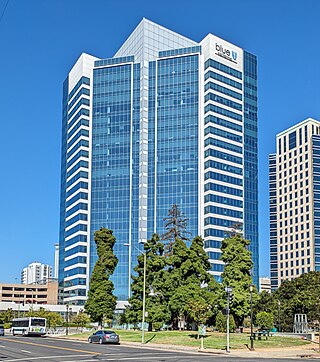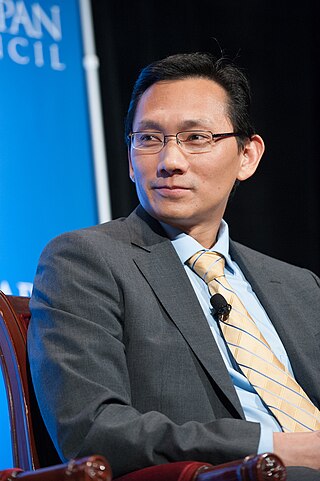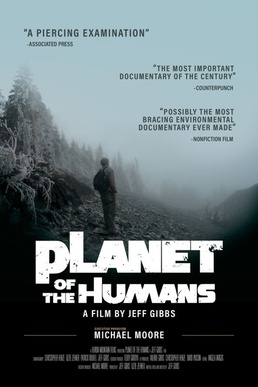
Suntech Power Holdings Co., Ltd. is a Chinese producer of solar panels, with 2,000 MW (2,700,000 hp) of annual production capacity by the end of 2011. It is headquartered in Wuxi, Jiangsu. Shunfeng International Clean Energy Limited, a HKSE listed renewable energy investment and Independent Power Producer company, acquired Suntech in 2014 following Suntech's bankruptcy in 2013. With offices or production facilities in every major market, Suntech has delivered more than 13,000,000 solar panels to thousands of companies in more than 80 countries around the world. As the center for the company's global operations, Suntech headquarters, in Wuxi, China, features the world's largest building integrated solar facade.

China is the world's leader in electricity production from renewable energy sources, with over triple the generation of the second-ranking country, the United States. China's renewable energy sector is growing faster than its fossil fuels and nuclear power capacity, and is expected to contribute 43% of global renewable capacity growth. China's total renewable energy capacity exceeded 1,000 GW in 2021, accounting for 43.5 per cent of the country's total power generation capacity, 10.2 percentage points higher than in 2015. The country aims to have 80 per cent of its total energy mix come from non-fossil fuel sources by 2060, and achieve a combined 1,200 GW of solar and wind capacity by 2030. In 2023, it was reported that China was on track to reach 1,371 gigawatts of wind and solar by 2025, five years ahead of target due to new renewables installations breaking records. In 2024, it was reported that China would reach its target by the end of July 2024, six years ahead of target.
Green jobs are, according to the United Nations Environment Program, "work in agricultural, manufacturing, research and development (R&D), administrative, and service activities that contribute(s) substantially to preserving or restoring environmental quality. Specifically, but not exclusively, this includes jobs that help to protect ecosystems and biodiversity; reduce energy, materials, and water consumption through high efficiency strategies; de-carbonize the economy; and minimize or altogether avoid generation of all forms of waste and pollution." The environmental sector has the dual benefit of mitigating environmental challenges as well as helping economic growth.
MiaSolé is an American solar energy company selling copper indium gallium selenide (CIGS) thin-film photovoltaic products. MiaSolé's manufacturing process lays CIGS on a flexible stainless steel substrate. MiaSolé produces all layers of photovoltaic material in a continuous sputtering process.

China is the largest market in the world for both photovoltaics and solar thermal energy. China's photovoltaic industry began by making panels for satellites, and transitioned to the manufacture of domestic panels in the late 1990s. After substantial government incentives were introduced in 2011, China's solar power market grew dramatically: the country became the world's leading installer of photovoltaics in 2013. China surpassed Germany as the world's largest producer of photovoltaic energy in 2015, and became the first country to have over 100 GW of total installed photovoltaic capacity in 2017. As of at least 2024, Chinese firms are the industry leaders in almost all of the key parts of the solar industry supply chain, including polysilicon, silicon wafers, batteries, and photovoltaic modules.

The renewable-energy industry is the part of the energy industry focusing on new and appropriate renewable energy technologies. Investors worldwide are increasingly paying greater attention to this emerging industry. In many cases, this has translated into rapid renewable energy commercialization and considerable industry expansion. The wind power, solar power and hydroelectric power industries provide good examples of this.

eSolar is a privately held company that develops concentrating solar power (CSP) plant technology. The company was founded by the Pasadena-based business incubator Idealab in 2007 as a developer of CSP plant technology. The company aims to develop a low cost alternative to fossil fuels through a combination of small heliostats, modular architecture, and a high-precision sun-tracking system. In October 2017, an article in GreenTech Media suggested that eSolar ceased business in late 2016.

Environment America is a federation of state-based environmental advocacy organizations in the United States. The organization researches and advocates for environmental policies through lobbying, litigation, and the mobilization of public support. Environment America advocates new laws and policies to address climate change, air pollution and water pollution, and is a proponent of clean energy, while opposing offshore drilling.

Tom Cotter (born June 29, 1972) is an American conservationist, entrepreneur, renewable energy advocate, and ordained evangelical minister living in Clovis, California.

The San Francisco Green Film Festival was an environmental film festival which was held annually from 2011 to 2019.
Canadian Solar Inc. is a publicly traded company that manufactures solar PV modules and runs large scale solar projects.
Clean Power Finance, headquartered in San Francisco, California, is a financial services and software company for the residential solar industry.
Danny Kennedy is an American clean-technology entrepreneur, environmental activist, and the author of the book Rooftop Revolution: How Solar Power Can Save Our Economy—and Our Planet—from Dirty Energy (2012). Kennedy is managing director of the California Clean Energy Fund, a non-profit dedicated to optimizing the clean energy transition. He co-founded Sungevity, a residential solar power company, and Powerhouse, the primer solar incubator in Oakland. While at Sungevity, Kennedy won a Planet Forward Innovator of the Year award from the PBS program Planet Forward.

Solar Mosaic is a clean energy fin-tech company based in Oakland, California. Founded in 2010, Mosaic created its initial business model using crowdfunding principals to offer loans for commercial solar development projects. After shifting its model in 2014, Mosaic is now focused on financing residential solar projects by leveraging third party capital partners. Through this model, the company aims to democratize the social and environmental benefits of clean energy.

Darren T. Kimura is an American businessman, inventor, and investor. He is best known as the inventor of micro concentrated solar power (CSP) technology known as MicroCSP.
Communities for a Better Environment (CBE), previously known as Citizens for a Better Environment, is a policy-focused non-profit organization started in 1971 by Marc Anderson and David Come in Chicago, Illinois. In the late 1970s and early 1980s, CBE expanded to California, Wisconsin, and Minnesota. CBE established itself in San Francisco in 1978 and expanded to Los Angeles in 1982. Today, CBE is based in Oakland, CA and Huntington Park, CA, effecting positive change in communities throughout California, including Richmond, East Oakland, Vernon, Huntington Park, Boyle Heights, Pacoima, Wilmington, and SE Los Angeles. CBE was the first environmental organization to practice door-to-door canvassing by directly involving community members. In 1980, CBE won the United States Supreme Court decision on Village of Schaumburg v. Citizens for a Better Environment 444 U.S. 620, protecting the 1st and 14th Amendment Rights of door-to-door activists with CBE and countless other public interest organizations. CBE's early combination of grassroots organizing with research and legal work provided the innovative edge needed to challenge large-scale industries and refineries, and government policies.

Shalini Kantayya is an American filmmaker and environmental activist based in Brooklyn, New York, whose films explore human rights at the intersection of water, food, and renewable energy. Kantayya is best known for her debut feature documentary, Catching the Sun.

Planet of the Humans is a 2019 American environmental documentary film written, directed, and produced by Jeff Gibbs. The film was executively produced by Michael Moore. Moore released it on YouTube for free viewing on April 21, 2020, the eve of the 50th anniversary of the first Earth Day.

Coded Bias is an American documentary film directed by Shalini Kantayya that premiered at the 2020 Sundance Film Festival. The film includes contributions from researchers Joy Buolamwini, Deborah Raji, Meredith Broussard, Cathy O’Neil, Zeynep Tufekci, Safiya Noble, Timnit Gebru, Virginia Eubanks, and Silkie Carlo, and others.













